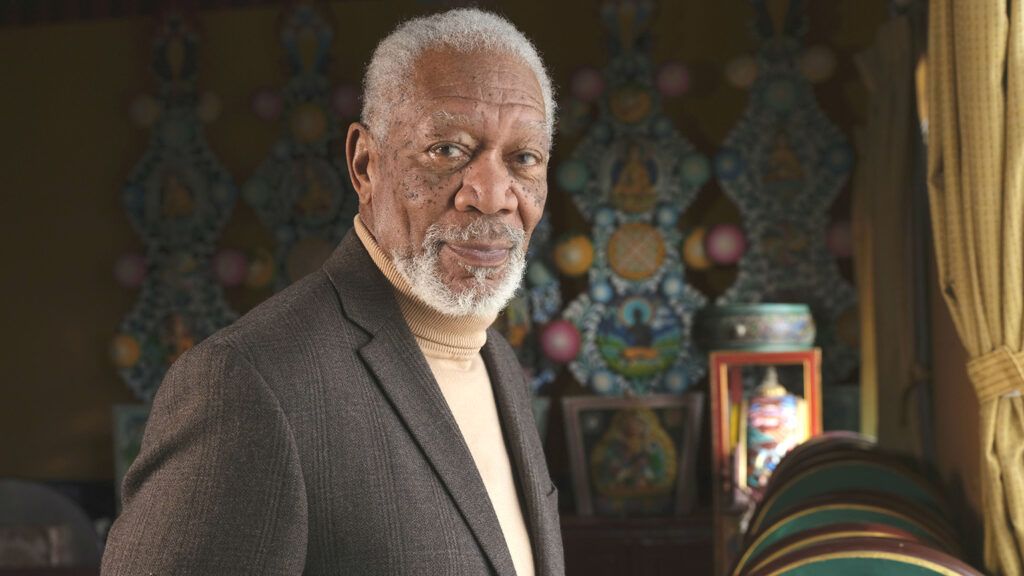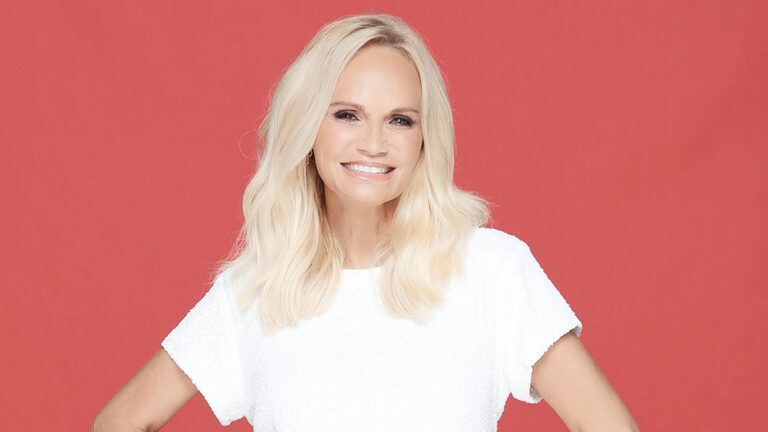Morgan Freeman has become an expert on religion, and it’s not just because he’s played God in more than one blockbuster.
The actor is currently helming the third season of his faith-based National Geographic series, The Story of God. The show has jetted him around the world, thrusting him into some of the most isolated places on the planet and introducing him to new cultures and beliefs, all in an effort to understand how faith and spirituality can connect us as human beings.
Freeman has visited The Vatican, Mayan Ruins and Egyptian pyramids for the show, and the third season sees the continuation of his educational journey, taking him to meet “living Goddesses” and Native American spirit guides. In the season’s third episode, dedicated solely to visions people of faith have experienced, the show spotlights Dr. Charles Mulli, who gave up a profitable business to help tens of thousands of abandoned and orphaned children in Kenya.
Guideposts.org spoke to Freeman and his producing partner Lori McCreary about why they wanted to dedicate an episode to miraculous visions and how the show has influenced their own faith.
GUIDEPOSTS.ORG: How were you able to get people to open up about these very personal experiences of faith?
Morgan Freeman: The first trick is to have an absolutely open mind. Everybody’s entitled to [their beliefs]. If they live in it, then it sustains them, and if it sustains them, then you, as an outsider, can’t go in with some judgmental attitude. If people think that you’re judging, then they won’t have much to say.
GUIDEPOSTS.ORG: Why were you so fascinated by this idea of visions?
Morgan Freeman: Well, we wanted to explore as many facets of spirituality, of faith, of religious belief as we [could] and visions are almost a mainstay of Catholicism.
Lori McCreary: I think that when we find these kinds of amazing stories where someone’s life has been…turned around or turned into a direction that is more toward the light, I think those are stories worth highlighting.
GUIDEPOSTS.ORG: One of those stories is the journey of Dr. Charles Mulli who is famous for giving up his fortune to help orphaned and abandoned children in his native Kenya.
Lori McCreary: I wish we had more time to tell his story because it’s such an incredible story. He basically heard God tell him that he needed to sell everything and start helping children and teens. And so, he adopted I think at this point it [is] 10,000 children through the years. You can imagine coming home and telling your kids and your spouse, ‘Hey, God told me this, and we’re going to basically sell everything.’
It’s a testament to his faith, and how big God is in his life. The amount of people whose lives this man has changed is extraordinary.
GUIDEPOSTS.ORG: With Mulli’s story, and really all of the vision stories you highlight this season, is there a common thread? Do these people share maybe an openness that helps them better receive these life-changing visions?
Morgan Freeman: That’s an interesting question you’re asking there. It’s possible that many of us have visions that we discount as a hallucination. I think that a lot of it is going to depend on what the message is from that particular experience.
Lori McCreary: I completely agree with that Morgan, that there’s something that we all have that God is speaking to us through, that maybe our lives are so busy that we’re not…connected to it. I was just inspired through meeting a lot of these people to spend a little bit more time in the quiet moments, listening, because maybe God’s speaking to me too.
GUIDEPOSTS.ORG: Is there an experience like Mulli’s, a vision or a kind of mysterious miracle, that sticks out to you after years of doing this show?
Morgan Freeman: The chap [who] immediately [comes] to mind was a physicist, who had exorcism experiences. He was not particularly religious going in, he was more scientific minded, but when he had these episodes and finally went to the Catholic church and met an exorcist his whole life was changed.
It was interesting. This very scientific man who felt he was walking through life [as] kind of a shell of a person. He never had any connections or feelings towards people at all and he went to lots of doctors, lots of eastern doctors, lots of western doctors, and nothing really worked.
But he grew up in a Catholic church and he remembered that there was this prayer of exorcism. He said it out loud and he basically ended up you know, flat on his face…Having a connection and remembering something and then…meeting with this exorcist, his life was completely transformed.
GUIDEPOSTS.ORG: Have you learned something from this show that’s influenced your own personal faith?
Morgan Freeman: Personally, I know I discovered a religion that I could identify with, Zoroastrianism, which is one of the oldest religions, but it has several tenets of good thoughts, good words, good deeds.
Lori McCreary: I grew up Christian, I’ve been a Christian my whole life. I’m also a geoscientist, so there’s always been a bit of a question from the outside world, especially my engineering friends, ‘How can you be such a deeply believing Christian and say you’re a scientist? It doesn’t seem like those two match.’
In the first season, there were a lot of conversations that we were having with religious people, who were also engineers. The one moment I will never forget was when we were at the Vatican, meeting with one of the priests who told us that the way he thinks about it is that when you look at Creation versus the Big Bang, that they aren’t two separate and opposite views of the world.
It’s just that the Creation story is the spiritual way to describe creation and Big Bang is the scientific way of describing creation, and they can both live together, side by side, they don’t have to be opposite views. For me, there was something very healing in that because I do have both views and it made me feel at least I’m not alone, that they can coexist.
This interview has been lightly edited for clarity and length.





